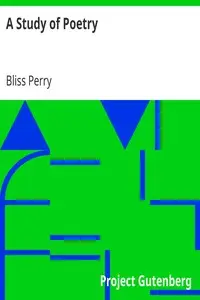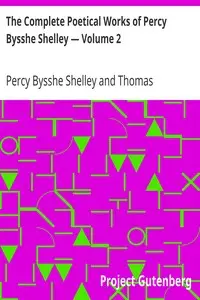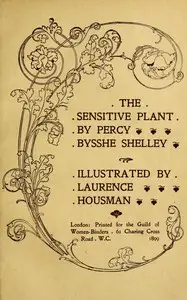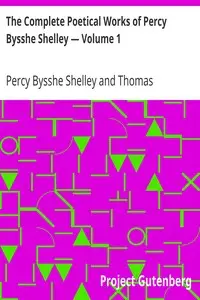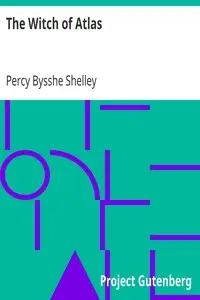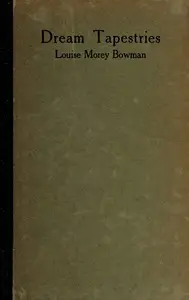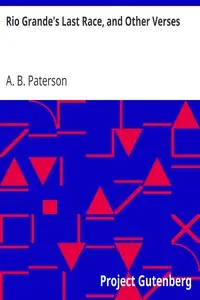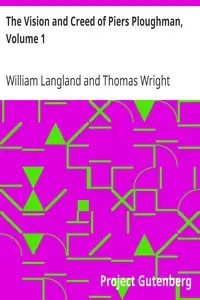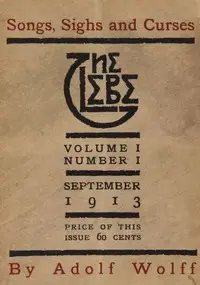** "A Defence of Poetry and Other Essays" by Percy Bysshe Shelley is a compilation of philosophical explorations from the 1800s. These essays explore subjects like love, the meaning of life, morals, and how humans artistically show themselves. Shelley uses his writing to argue that poetry is crucial for expressing human feelings and imagination and highlighting its importance in culture. The work starts with a detailed look at love, calling it a strong force that connects people. Shelley talks about the confusing nature of human emotions, stressing the need to understand and connect with others, which can be disappointing if those connections fail. He thinks love is a key part of our lives, pushing us to find beauty everywhere and he uses a poetic and thoughtful style to set up a deep conversation about how human experiences are all connected and how poetry can greatly change people. **
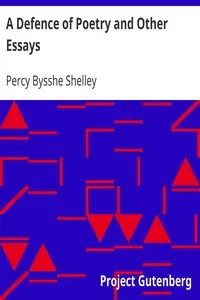
A Defence of Poetry and Other Essays
By Percy Bysshe Shelley
** Explore poetic arguments that champion the vital role of imagination and emotion in shaping society and connecting humanity.
Summary
About the AuthorPercy Bysshe Shelley was an English writer who is considered one of the major English Romantic poets. A radical in his poetry as well as in his political and social views, Shelley did not achieve fame during his lifetime, but recognition of his achievements in poetry grew steadily following his death, and he became an important influence on subsequent generations of poets, including Robert Browning, Algernon Charles Swinburne, Thomas Hardy, and W. B. Yeats. American literary critic Harold Bloom describes him as "a superb craftsman, a lyric poet without rival, and surely one of the most advanced sceptical intellects ever to write a poem."
Percy Bysshe Shelley was an English writer who is considered one of the major English Romantic poets. A radical in his poetry as well as in his political and social views, Shelley did not achieve fame during his lifetime, but recognition of his achievements in poetry grew steadily following his death, and he became an important influence on subsequent generations of poets, including Robert Browning, Algernon Charles Swinburne, Thomas Hardy, and W. B. Yeats. American literary critic Harold Bloom describes him as "a superb craftsman, a lyric poet without rival, and surely one of the most advanced sceptical intellects ever to write a poem."

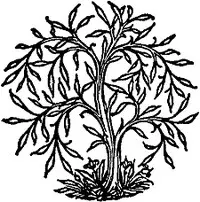
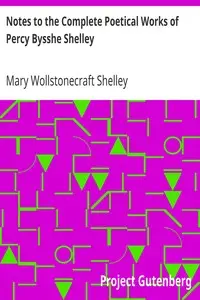

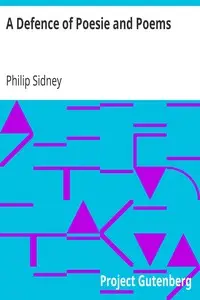
![The Prose Works of Percy Bysshe Shelley, Vol. 2 [of 2] by Percy Bysshe Shelley](https://cdn.a2-host.cloud/N5mkWLLMME8fsj53C1cwpEjUdDWU-6Y0rYa0VHN1zFM/rs:fill:215:325:0/g:ce/aHR0cHM6Ly9zcC1hc3NldHMuczMudXMtd2VzdC0wMDQuYmFja2JsYXplYjIuY29tL2Jvb2svNjc5MjYvVGhlX1Byb3NlX1dvcmtzX29mX1BlcmN5X0J5c3NoZV9TaGVsbGV5X1ZvbF8yX29mXzJfY292ZXIuanBn.webp)

